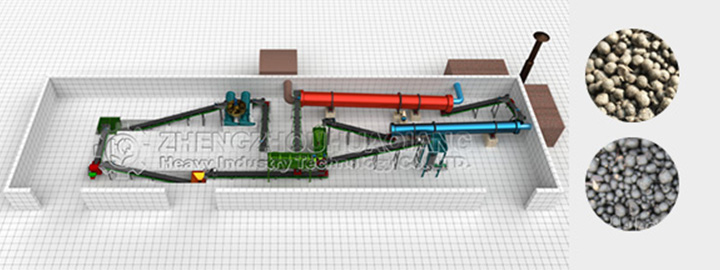In the process of agricultural modernization, organic fertilizer production line is becoming a key force to promote industry change, and its prospects are bright.

From the perspective of market demand, as consumers favor organic food and green agricultural products, the demand for high-quality organic fertilizer has surged. Agricultural products must be labeled "organic" and "green", and the production process is highly dependent on organic fertilizer. The global organic fertilizer market is showing a trend of continuous expansion, and its potential should not be underestimated. my country has a vast area of arable land, and the planting area of economic crops such as orchards, flowers, and vegetables continues to grow, which provides a huge market space for organic fertilizer.
At the policy level, the government vigorously supports the development of the organic fertilizer industry. The Ministry of Agriculture and Rural Affairs has clearly proposed the development of commercial organic fertilizer and microbial fertilizer production, and various regions have also introduced corresponding measures to support the development of the organic fertilizer industry, providing a solid guarantee for the development of organic fertilizer production lines.
The environmental protection advantage is the highlight of the organic fertilizer production line. At the moment when the livestock and poultry farming industry is booming, a large amount of livestock and poultry manure can easily cause environmental pollution if it is not properly disposed of. Organic fertilizer production lines can convert waste such as livestock and poultry manure and crop straw into high-quality fertilizers, realize resource recycling, solve pollution problems, and create considerable economic benefits.
Technological innovation has also injected vitality into the development of organic fertilizer production lines. Today's organic fertilizer equipments are integrated with intelligent control systems to achieve remote monitoring and automatic adjustment, greatly improving production efficiency and reducing labor costs, while moving towards low energy consumption and zero emissions.
In summary, whether it is market demand, policy orientation, or environmental protection requirements and technological progress, it indicates that the prospects for organic fertilizer production lines are unlimited. Investing in this field can not only reap rich economic returns, but also contribute to the green development of agriculture and the protection of the ecological environment.